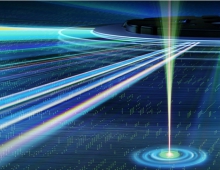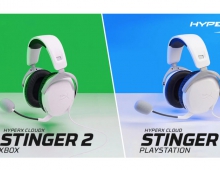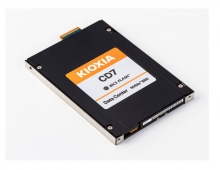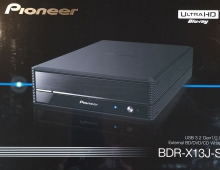
Dell, HP back new Blu-Ray DVD standard
US computer makers HP and Dell said they would support the Blu-Ray DVD standard with
much higher storage capacity which is being promoted by 10 electronics companies.
Dell and HP, the world's largest personal computer makers, said they would support
the so-called Blu-ray DVD technology, which allows for recording of up to four hours
of high-definition television on a single disc.
"HP believes Blu-ray Disc is the most consumer-friendly technology choice for the next generation of removable storage," John Romano, senior VP at HP, said in a statement.
Gerry Smith, VP of peripheral development and procurement at Dell, said the technology was an obvious choice given the additional storage capacity offered and the broad support from consumer electronics and PC manufacturers and large entertainment companies.
Blu-ray is competing with another new blue laser-based DVD technology from Japan's Toshiba and NEC.
Blue lasers have a shorter wavelength than the current red lasers, which allows for a thinner light beam which can read and write smaller bits of information on a disc.
Among the 10 companies promoting Blu-Ray are Hitachi, LG Electronics, Philips Electronics, Sony and Thomson.
Although the support of the two main PC makers is a shot in the arm of the Blu-ray group, the rival technology from Toshiba and NEC won the support of the DVD Forum in November.
The DVD Forum is the alliance of 220 DVD companies, including electronics and media firms.
The DVD industry has seen other format wars. There are five different rewriteable red laser technologies on the market, many of which will not play discs recorded with a competing standard. Crucial in the blue laser battle will be the support of the Hollywood movie studios, which are expected to adopt just one standard for pre-recorded (read-only) blue laser DVDs.
"The BD-ROM (read-only) format, developed in collaboration with Hollywood studios and the IT industry, is expected to be available early 2004, allowing for BD-ROM products to be available by the end of 2005," the Blu-ray group said.
"HP believes Blu-ray Disc is the most consumer-friendly technology choice for the next generation of removable storage," John Romano, senior VP at HP, said in a statement.
Gerry Smith, VP of peripheral development and procurement at Dell, said the technology was an obvious choice given the additional storage capacity offered and the broad support from consumer electronics and PC manufacturers and large entertainment companies.
Blu-ray is competing with another new blue laser-based DVD technology from Japan's Toshiba and NEC.
Blue lasers have a shorter wavelength than the current red lasers, which allows for a thinner light beam which can read and write smaller bits of information on a disc.
Among the 10 companies promoting Blu-Ray are Hitachi, LG Electronics, Philips Electronics, Sony and Thomson.
Although the support of the two main PC makers is a shot in the arm of the Blu-ray group, the rival technology from Toshiba and NEC won the support of the DVD Forum in November.
The DVD Forum is the alliance of 220 DVD companies, including electronics and media firms.
The DVD industry has seen other format wars. There are five different rewriteable red laser technologies on the market, many of which will not play discs recorded with a competing standard. Crucial in the blue laser battle will be the support of the Hollywood movie studios, which are expected to adopt just one standard for pre-recorded (read-only) blue laser DVDs.
"The BD-ROM (read-only) format, developed in collaboration with Hollywood studios and the IT industry, is expected to be available early 2004, allowing for BD-ROM products to be available by the end of 2005," the Blu-ray group said.





















